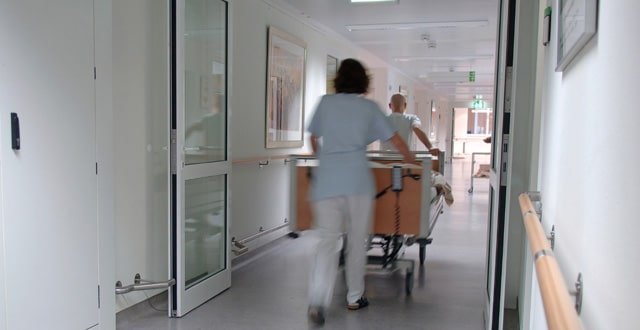Eleven cases have been notified to the Health Protection Surveillance Centre (HPSC) since the last week in December. Three patients diagnosed with meningococcal disease have sadly died. All three deaths were directly due to this infection.
The eleven cases notified in week 52, 2018 and week 1, 2019 compares to five cases for the same time period last year. In 2018, a total of 89 meningococcal cases were notified compared to 76 in 2017.
Dr Suzanne Cotter, Specialist in Public Health Medicine, HPSC, commented: “Although meningococcal disease incidence generally increases in the winter months, the recent increase is cause for concern and the HSE wishes to alert the public to the signs and symptoms of this disease so that immediate medical attention can be sought if someone has symptoms that could be caused by this bug.
“If anyone has any concerns about meningitis, they should ring their GP in the first instance. Meningitis and septicaemia often happen together, and symptoms can appear in any order. Some may not appear at all. Early symptoms can include; fever, headache, vomiting, diarrhoea, muscle pain, stomach cramps, fever with cold hands and feet and a rash, but do not wait for the rash to appear. If someone is ill and getting worse, get medical help immediately.
“Parents of children should also check that they are up-to-date regarding their childhood meningococcal vaccinations.”
Provisional data on the strain types identified since week 52, 2018 indicates that different strains of the organism are circulating and causing disease. All age groups have been affected, ranging from infants to elderly. Of the three patients who died, two different strain types were identified.
Following investigation, none of the patients with meningococcal disease have been identified as having had contact or links with each other. Spread of meningococcal from person to person is very unusual, especially outside of close household contact.
Meningitis is a serious illness involving inflammation of the membranes covering the brain and spinal cord. It can be caused by a variety of different germs, mainly bacterial and viruses. Bacterial meningitis is less common but is usually more serious than viral meningitis and requires urgent treatment with antibiotics and may be accompanied by septicaemia.
The bacteria live naturally in the nose and throat of normal healthy persons without causing illness and the spread of the bacteria is caused by droplets from the nose and mouth. The illness occurs most frequently in young children and adolescents, usually as isolated cases. Bacterial meningitis or septicaemia requires urgent antibiotic treatment.
Signs and symptoms may include:
• Fever (sometimes with cold hands and feet)
• Joint or muscle pain
• Rapid breathing
• Severe Headaches
• Drowsiness
• Discomfort from bright light
• Neck stiffness
• Vomiting, stomach cramps and diarrhoea
• Non-blanching rash may appear which may be tiny red pin pricks that may develop to purple bruises. This rash does not fade under pressure.
The HSE advises that if anyone has any concerns or is showing symptoms, they should contact their GP in the first instance but ensure that medical expertise is sought.
Parents of children should ensure that they have received all their vaccines on time. A vaccine that protects against meningococcal C disease (MenC vaccine) is given at six months and at 13 months and meningococcal B vaccine (MenB vaccine) is given at two-, four- and 12-months of age. In addition adolescents are routinely offered the MenC vaccine in the first year of secondary school. Older teenagers and young adults up to the age of 23 years who never received a MenC vaccine are recommended to get the vaccine.
Other vaccines that protect against other forms of meningitis and septicaemia are included in the routine child vaccination programme (Hib vaccine and pneumococcal vaccine (PCV)). All children should get their vaccines in accordance with the national schedule. Children who have missed vaccines can obtain these vaccines from their GPs.
A drop in the uptake of meningococcal vaccines among children has been noted in recent years. In Q2, 2018, the uptake of MenC (first dose) for babies at 12 months was 90 per cent; the uptake for two doses of MenB at 12 months was 93 per cent and the uptake of MenC at 24 months was 88 per cent. Among adolescents (first year in secondary school) the uptake of MenC vaccine during the 2016-2017 academic year was 83.9 per cent.













Leave a Reply
You must be logged in to post a comment.